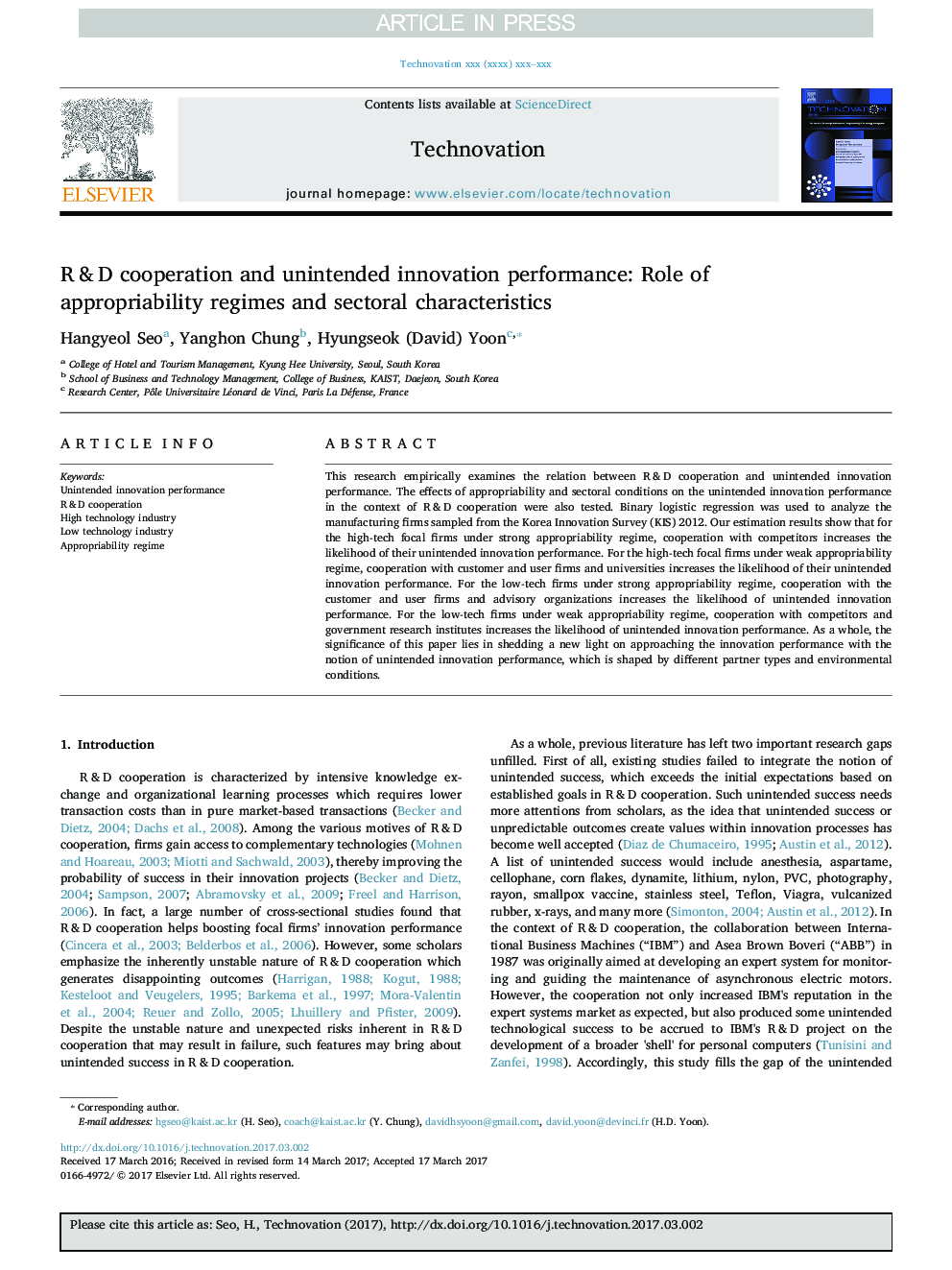| Article ID | Journal | Published Year | Pages | File Type |
|---|---|---|---|---|
| 7427186 | Technovation | 2017 | 15 Pages |
Abstract
This research empirically examines the relation between R&D cooperation and unintended innovation performance. The effects of appropriability and sectoral conditions on the unintended innovation performance in the context of R&D cooperation were also tested. Binary logistic regression was used to analyze the manufacturing firms sampled from the Korea Innovation Survey (KIS) 2012. Our estimation results show that for the high-tech focal firms under strong appropriability regime, cooperation with competitors increases the likelihood of their unintended innovation performance. For the high-tech focal firms under weak appropriability regime, cooperation with customer and user firms and universities increases the likelihood of their unintended innovation performance. For the low-tech firms under strong appropriability regime, cooperation with the customer and user firms and advisory organizations increases the likelihood of unintended innovation performance. For the low-tech firms under weak appropriability regime, cooperation with competitors and government research institutes increases the likelihood of unintended innovation performance. As a whole, the significance of this paper lies in shedding a new light on approaching the innovation performance with the notion of unintended innovation performance, which is shaped by different partner types and environmental conditions.
Related Topics
Social Sciences and Humanities
Business, Management and Accounting
Business and International Management
Authors
Hangyeol Seo, Yanghon Chung, Hyungseok (David) Yoon,
